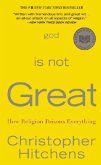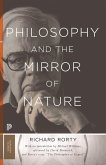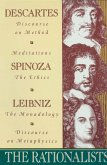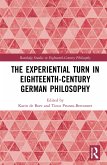The knowledge of revelation was tainted by politicized research. Militant ulama re-interpreted Islam to meet the requirements of their political masters, by providing them with a "religious" justification for waging unlawful wars of aggression for achieving territorial expansion. They justified empire building or imperialism. The ulama transformed the religion of peace into a religion of war through the weaponization of exegesis and jurisprudence. This required the repression of reason and departing from key teachings of revelation. The repression of reason was tantamount to "intellectual suicide." The repression of reason together with a defiance of teachings of revelation brought political suicide. Political self-destruction was triggered by waging unlawful wars of aggression, allegedly for the purpose of the propagation of religion through compulsion, prohibited by revelation. Hawkish ulama justified wars of aggression by treating tradition as "revelation" and by resorting to the alleged abrogation of the verses of reconciliation by the verse of the sword. Rulers also justified their participation in wars of aggression by recourse to the tradition according to which the prophet allegedly declared that "the blood of the kafir is halal for the believer." When non-Muslims pushed back, as by Charles Martel in the Battle of Tours in France in 732, Genghis Khan against Baghdad in 1268, and the Europeans during Siege of Vienna in 1529 and the Battle Vienna in 1683, the umma was defeated. The recent bombings of Iraq, Afghanistan and Yemen reveal a pattern. Aggression triggers retaliation. Waging wars of aggression was treated as a sixth pillar of Islam. In justifying aggression, hawkish ulama transgressed the hudud (boundaries) of Allah rendered lawful what Allah prohibited. They transformed Islam into political enterprise - Islamism - endeavouring to rule everybody and establish a paradise on earth, the caliphate. Hawkish ulama used research as a tool justifying repression. Imam al-Ghazali used his talents to rebut the perceptions of the Fatimids of Egypt, after being asked to do so by caliph al-Mustazhir. A nadir was reached by Yusuf al-Qaradawi and his "justification" of terrorism. Was scholarship ever degraded to a greater extent than by extremist preachers? He retracted his fatwa but crimes were already perpetrated and are still being perpetrated. Jurist must restrain extremists in their midst. If they do not, other parties may feel compelled to do it. More generally, it is necessary to return to the Islam of the Book of Allah and turn from Islamism and those who peddle it. Progress requires the rejection of the teachings of abrogation and predestination, the de-sacralization of tradition and a rehabilitation and re-engagement of reason. Hawkish ulama remain reserved regarding jihad al-talab, the slaughter of the philosophers, the reason for the devastation by the Mongols, about the Mutazilites, and about the ahl al-kalam. The traditional rendition of Islamic heritage, academic as well as political, resembles a "sanitization" of the past. There is also reticence to take arguments to their conclusions and to state the significance of malpractices and unwarranted presuppositions, particularly encroachments on the pre-eminence of Allah. The "sunna" of the messenger was misrepresented when it was equated with upholding Bukhari rather than the Book of Allah. Bukhari is bereft of traditions on justice, ethics, reason, freedom or governance. Allah prohibited "adding" to revelation. Yet tradition features in excess of sixty books of traditions, presented as "explanatory" and "supplementary" revelation from God, designed to "explain" and "complete" the revelation of the Quran. The prophet followed the Book of Allah. The prophet did not follow books of traditions. He prohibited the recording of his traditions. Persons that recorded the traditions defied Allah as well as the messenger.
Hinweis: Dieser Artikel kann nur an eine deutsche Lieferadresse ausgeliefert werden.
Hinweis: Dieser Artikel kann nur an eine deutsche Lieferadresse ausgeliefert werden.








